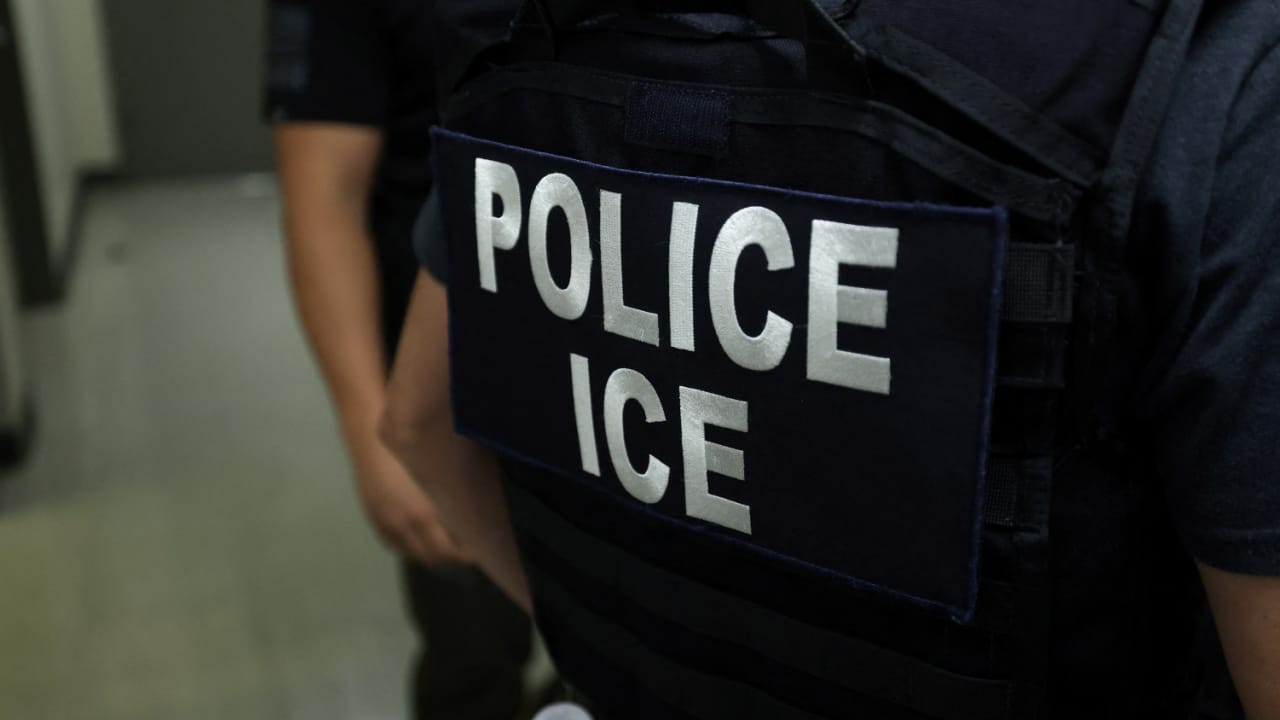The Justice Department Has Brought Forth Federal Criminal Charges Against Derek Chauvin And 3 Other Police Officers
Updated May 13, 2021.
The crowd outside the Minneapolis courtroom and at the location of George Floyd’s murder broke into a rallying cry of relief in April when it was revealed that former police officer Derek Chauvin was found guilty. Jurors overseeing his trial came to the decision which was greeted with chants of “justice” and “Black Lives Matter” which broke out on the streets.
After reading the jury’s verdicts in April, Judge Peter Cahill revealed that they found Chauvin guilty of all three counts.
Chauvin, 45, was found guilty of second-degree murder, third-degree murder, and second-degree manslaughter.
Despite his plea of not guilty Chauvin (who knelt on Floyd’s neck for nine minutes while Floyd was handcuffed) was convicted of the charges that accused him of causing Floyd’s death by “perpetrating an act eminently dangerous to others and evincing a depraved mind, without regard for human life” and “culpable negligence whereby the person creates an unreasonable risk, and consciously takes chances of causing death or great bodily harm” according to CNN
Soon after reading the verdict, Judge Peter Cahill thanked the jurors for their service in the case remarking “I have to thank you on behalf of the people of the state of Minnesota, for not only jury service, but heavy-duty jury service.”
The Justice Department has now filed federal criminal charges against Derek Chauvin as well as three other former police officers at the scene of Floyd’s death.
The Justice Department has accused Chauvin of using excessive force and violating the civil rights of George Floyd. The three other officers, Thomas Lane, J. Alexander Kueng and Tou Thao, have also been charged federally for their part in Floyd’s death. According to NPR, “two of the men, Kueng and Thao, are accused of failing to intervene to stop Chauvin. All three face a charge of failing to provide medical care with ‘deliberate indifference’ to Floyd’s suffering. They already are preparing for a state trial in August.”
In an update about their trials, AP News reported that the “trial of three former Minneapolis police officers charged with aiding and abetting in the death of George Floyd will be pushed back to March 2022, in part to allow the publicity over Derek Chauvin’s conviction to cool off, a judge ruled Thursday.”
In response to the verdicts, the attorney Ben Crump and George Floyd’s family released a statement describing it as going far beyond Minneapolis and underlining how it has “significant implications for the country and even the world.”
“Painfully earned justice has arrived for George Floyd’s family and the community here in Minneapolis, but today’s verdict goes far beyond this city and has significant implications for the country and even the world. Justice for Black America is justice for all of America. This case is a turning point in American history for accountability of law enforcement and sends a clear message we hope is heard clearly in every city and every state. We thank Minnesota Attorney General Keith Ellison and his team for their fierce dedication to justice for George. But it does not end here. We have not forgotten that the other three officers who played their own roles in the death of George Floyd must still be held accountable for their actions, as well,” the statement read.
Soon after the verdicts were read Chauvin was handcuffed and taken into custody by the Hennepin County Sheriff’s Office.
The sentencing will take place in eight weeks from today.
Nearly a year has passed since the death of George Floyd but the fight for justice carried on. During the trial, released transcripts of body camera footage show that Floyd had pled for his life and told officers at least 27 times that he couldn’t breathe before his death.
The opening statements of Derek Chauvin’s criminal trial took place in late March and revealed shocking details on the case of George Floyd. One of the biggest revelations came from the prosecuting attorney Jerry Blackwell that Chauvin knelt on Floyd’s neck for 9 minutes and 29 seconds rather than the commonly believed 8 minutes and 46 seconds. In addition to this, is the reveal that it was in fact a 911 dispatcher who witnessed George Floyd’s death last May.
Watching the incident through a nearby police camera, Jena Scurry was in fact the person who called the police on the police officer.
Jena Scurry is the dispatcher who first raised the alarm about Floyd’s death.
“You’re going to learn that there was a 911 dispatcher. Her name is Jena Scurry,” special prosecutor Jerry Blackwell stated during an opening statement on behalf of the state “There was a fixed police camera that was trained on this particular scene. She could see through the camera what was going on. You will learn that what she saw was so unusual and, for her, so disturbing that she did something that she had never done in her career.”
Watching what was happening, Scurry reportedly became so worried by what she saw Chauvin and the three other officers taking part in that she called Minneapolis Sgt. David Pleoger. Ultimately it was Pleoger who managed the officers involved in the murder
“My instincts were telling me something was wrong,” Scurry explained to prosecutors that took place during the trial at Hennepin County Courthouse this past Monday. “It was a gut instinct of the incident: Something is not going right. Whether it be they needed more assistance. Just something wasn’t right.”
Scurry testified that while she could not remember when she called police she was moved to take action after an uncomfortable “extended period of time.”
At one point, the defense noted that it took some time for Scurry to call Chauvin’s sergeant. In fact, it took nearly 30 minutes from when the dispatcher received the first 911 call about Floyd. She also stated during her testimony that she became concerned when she saw the police vehicle “rocking bath and forth” while Floyd was inside.
Scurry was actually one of “at least three people who called for police intervention as she watched Chauvin kneel on Floyd’s neck for 9 minutes and 29 seconds during his May 25 arrest outside a downtown convenience store, according to Blackwell,” according to CNN.
On the eighth day of Chauvin’s criminal trial, the special agent who led investigation into George Floyd’s death changed his mind on what he thought he heard Floyd say while Chauvin was kneeling on his neck.
Senior Special Agent James Reyerson who led the Minnesota Bureau of Criminal Apprehension was shown a clip from Minneapolis Police body-camera footage of Floyd during his murder. In the clip, Floyd can be heard something while handcuffed, his stomach pressed to the ground.
“Did it appear that Mr. Floyd said, ‘I ate too many drugs?” Chauvin’s defense attorney Eric Nelson asked Reyerson.
“Yes, it did,” Reyerson replied.
After, what CNN describes as “a short break,” the prosecution played an extended clip of the video for for Reyerson.
“Having heard it in context, are you able to tell what Mr. Floyd is saying there?” the prosecutoing attorney Matthew Frank asked.
“Yes, I believe Mr. Floyd was saying, ‘I ain’t do no drugs,” Reyerson replied.
Top-ranking police officials from the Minneapolis Police Department, including the city’s police chief, testified that Chauvin’s use of force against George Floyd was a violation of protocols.
Police Chief Medaria Arradondo, Lt. Richard Zimmerman, and Chauvin’s currently-retired former supervisor, Sgt. David Pleoger, testified against him this week during his murder trial for his murder of Floyd. Arradondo testified against Chauvin on Monday said that he “vehemently disagreed” with Chauvin’s use of force against Floyd on May 25, 2020.
“There’s an initial reasonableness in trying to get him under control in the first few seconds,” Arradondo told the jury. “But once there was no longer any resistance — and clearly when Mr. Floyd was no longer responsive and even motionless — to continue to apply that level of force to a person prone down, handcuffed behind their back … that in no way, shape, or form is part of our policy, is not part of our training, and is not part of our ethics and values.”
The prosecution team played bystander video of Floyd’s murder during the opening statement and accused Chauvin of violating the oath of his badge.
The prosecutor stated that he also betrayed his post when he refused to help Floyd when he pleaded “I can’t breathe.”
“We plan to prove to you that he’s anything other than innocent,” Blackwell said in his statement.




